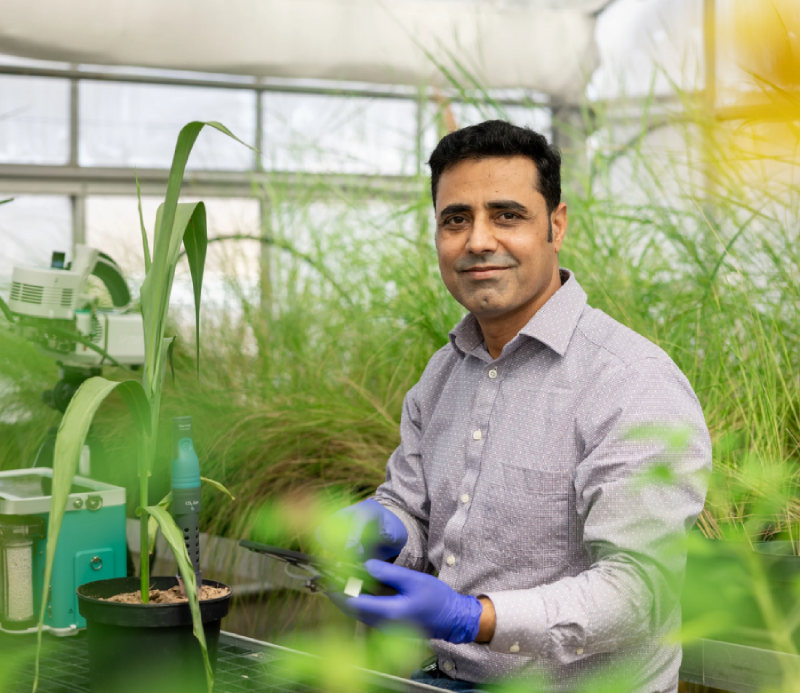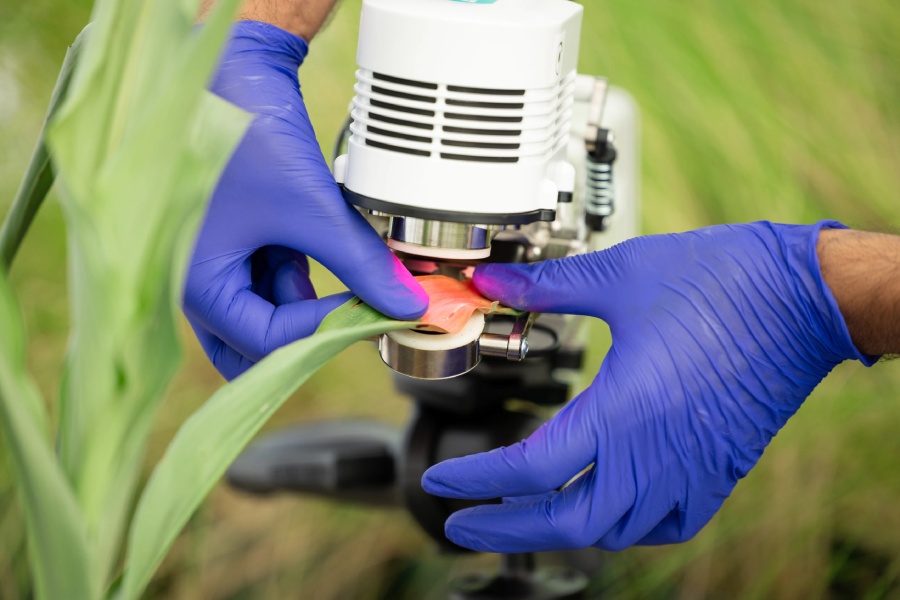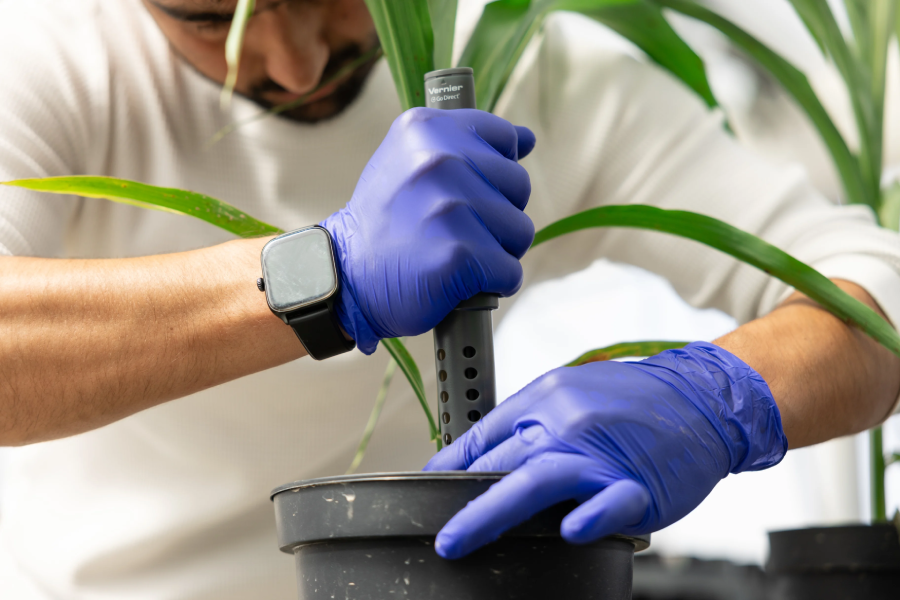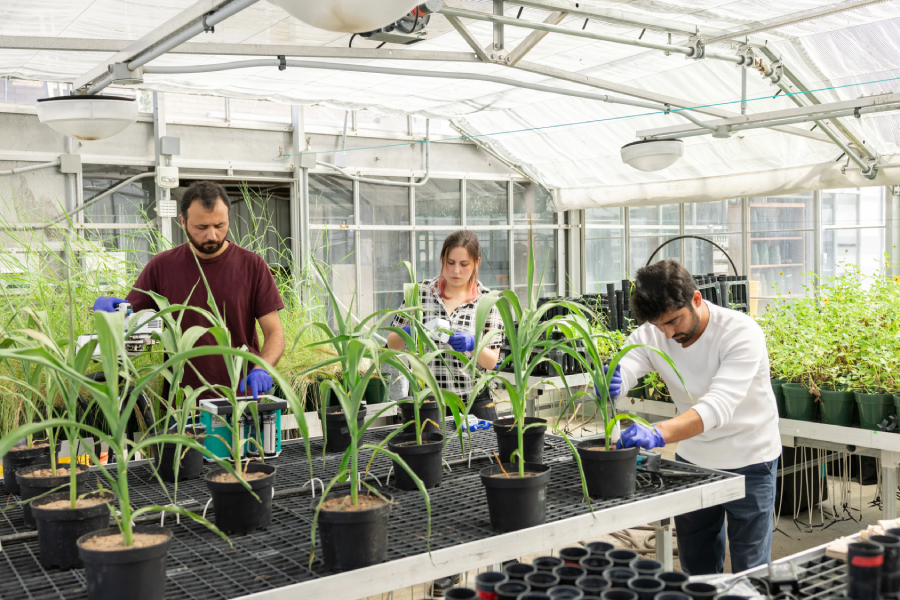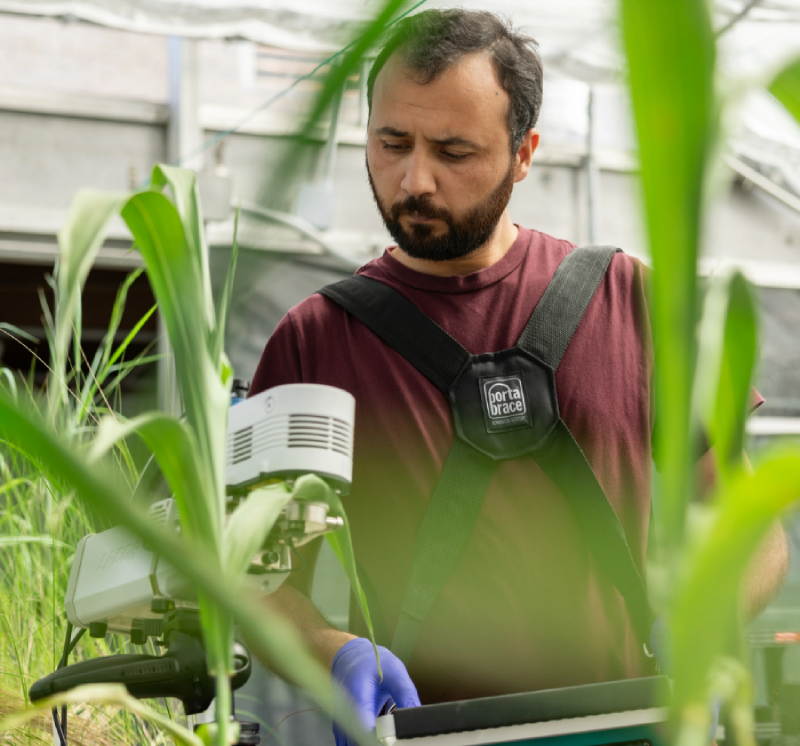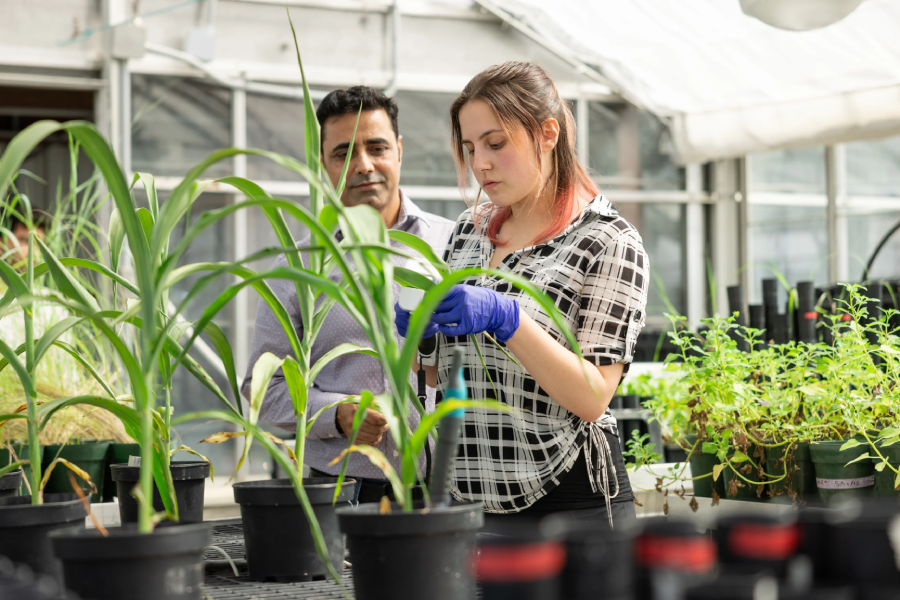The U.S. Department of Agriculture’s National Institute of Food and Agriculture has chosen a University of Houston project as one of 12 nationwide aimed at improving soil health and productivity through innovative tools and techniques. The UH project will help develop a new nutrient management strategy to grow crops in poor-quality soils and to have higher resistance to climate change.
Healthy soils are like vibrant ecosystems that support plant and animal life, improve water and air quality, and boost the overall health of plants, animals and people.
THE EFFORT COMES NOT A MOMENT TOO SOON
A combination of factors — including changes in rainfall patterns, increased incidences of drought and unprecedented heatwaves - have all led to soil salinization, a condition where salt builds up in the soil, making it harder for plants to grow. Over time, this salt can accumulate in the soil, which can harm plants by making it difficult for them to take in water and nutrients.
In the end, the crop’s growth and food production will be affected, which can be especially detrimental for crops that provide both income and essential nutrients.
At the University of Houston Cullen College of Engineering Technology Division, Abdul Latif Khan, assistant professor, spearheads the project selected by NIFA. His project, adapting and implementing naturally occurring nutrients to understand soil and plant systems, has lofty goals: It may not only solve several agricultural productivity issues, but may also do no less than improve carbon capture and storage, which can be an ideal strategy to overcome the impacts of climate change.
IT FOCUSES ON SILICON AND SOYBEAN PLANTS
Silicon is a quasi-essential soil element widely distributed in the earth’s crust and accessible to plants as silicic acid, which can improve plant growth, photosynthesis and resistance to drought and heat. Very little is known about how silicon can influence carbon storage and capture in saline agricultural soils.
“This project will help us learn how silicon affects the way carbon is stored in the soil around plant roots, called the rhizosphere, when there’s too much salt,” said Khan. “We’ll also find out how silicon moves into the parts of soybean plants that grow above the ground.”
Khan will also examine how silicon affects soybean plants when they're under stress from too much salt in the rhizosphere, exploring how the plants’ bodies and their internal processes at the molecular level change in response to silicon.
Khan recently published an article in the Journal of Advanced Research on silicon as a valuable soil element for improving plant growth and carbon sequestration.
The project research will help develop a new nutrient management strategy to grow crops in poor-quality soils and increase their resistance to climate change.
Co-investigators of the project from the University of Houston are Venkatesh Balan and Shuhab Khan from the Department of Earth and Atmospheric Sciences. Also on the team are Ram Ray, Prairie View A&M University and Ayalew Osena, UNC Greensboro.
